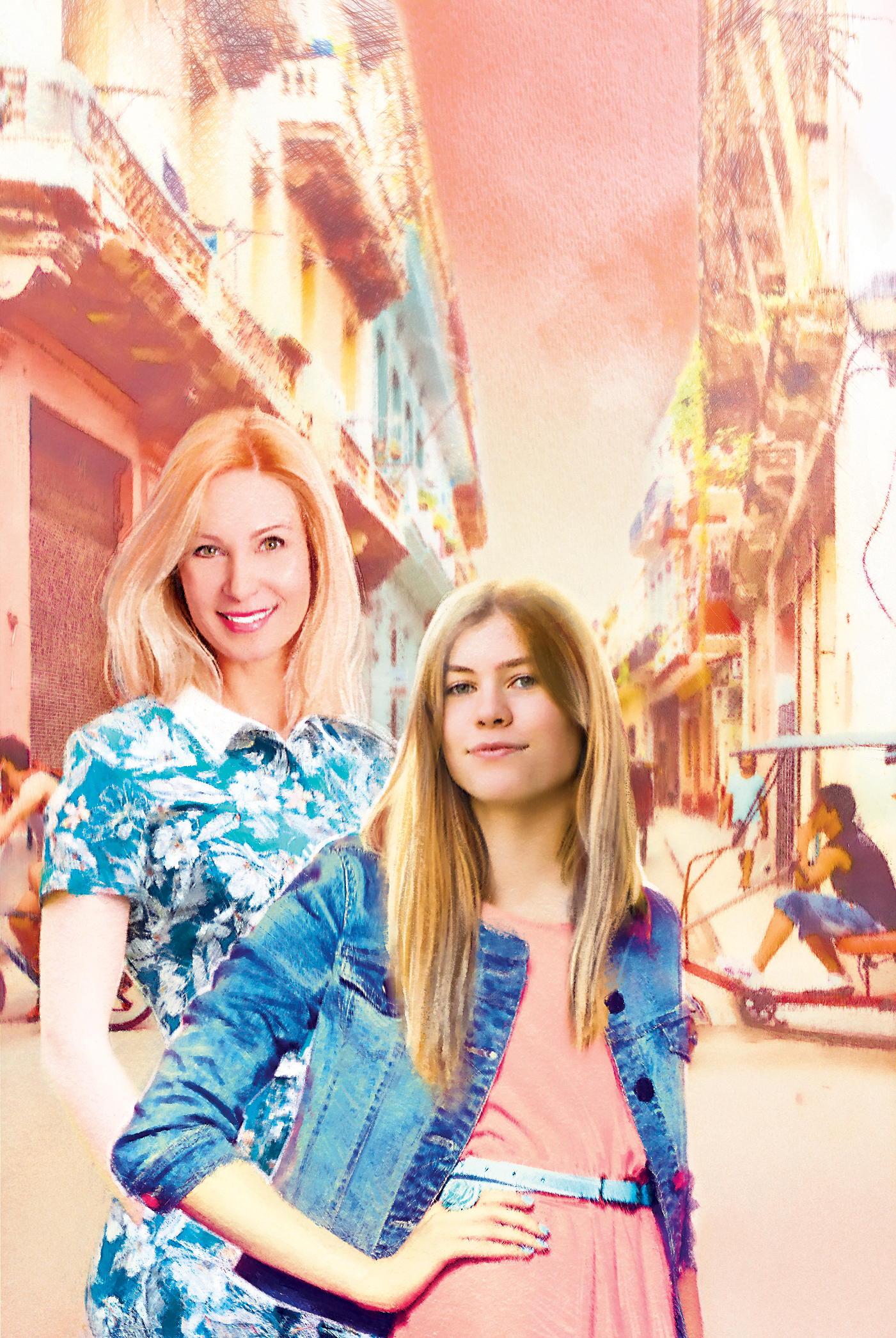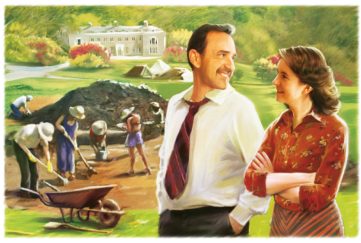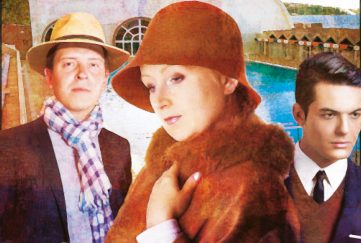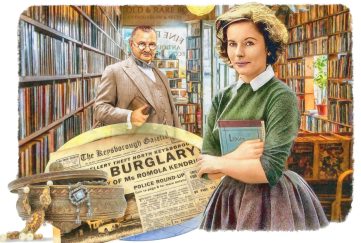Danger In Havana – Episode 18

Danger In Havana by Cara Cooper
« Previous Post- 1. Danger In Havana – Episode 01
- 1. Danger In Havana – Episode 18
THE endless emerald fields continued to speed swiftly by them. It was clear that Norelvis was a good and careful driver, although Mark wished he wouldn’t answer his mobile phone and gabble away in Spanish as he drove. The health and safety driving laws obviously weren’t as firm in Cuba as they were in England and Mark had seen loads of people on their mobiles as they drove.
“That was my friend in Trinidad,” Norelvis said. “He is Carlos, the father of an old schoolfriend. He runs a good place to stay, a casa particular, nice home on the edge of town, he speak English well. He is very good cook, makes good Cuban food. You eat dinner tonight, then we sleep. We go search for beautiful girl tomorrow, yes?”
“Yes. I hope he has maps and things and can find the German man’s house,” Mark said.
“Of course, we look at everything this evening. We have good meal, we make Mrs Bryony feel better, give her help to find Anna.”
“Yes, Norelvis, that would be good.”
“And my driving, that is good, too, good and safe, yes?”
“Yes, it’s fine, you’re doing well.” Mark could have done with a lad like him on the force back home, someone eager to please, optimistic and sensible. People took jobs and their relatively comfortable lifestyles for granted in England.
Here, they were going through a town and the houses were tiny. As they drove past, there were stray dogs in the street, skinny and abandoned. People were still smiley and welcoming but he saw a number of houses where a grandmother, mother and daughter with a young baby would wave as they went by. Three or even four generations living in one tiny house was not unusual.
“We have to cross the railway line here,” Norelvis said, “but there is something up.”
They slowed down to a crawl. A number of policemen were guiding the long queue of noisy honking cars which also included horses and carts. People were transporting extraordinary loads, old motor bikes and washing machines, babies and elderly people and it was clear that for some, a horse and rickety old cart was their only form of transport.
As they had come to a halt, they could see a long line of people picking stuff up off the tracks. Mark sat up and peered. He simply couldn’t make out what they were collecting so avidly. Norelvis got out, and conversed for a while in Spanish before he got back in. Bryony who had woken but was still sleepy from her nap.
“What’s happening?”
“It is just a Cuban thing,” Norelvis said. “A train he has broken down and spilled his load, white sugar, on the tracks. As soon as people in the villages hear, they come out with anything they have – paper bags, bowls, brushes – anything to sweep up the sugar and take it home.”
“But you produce sugar cane here on the island, I’ve seen acres and acres of it. Why would they want to scrape it up from dirty train tracks?”
“True,” he shrugged his shoulders, “but now the Russians are no longer friends of Cuba, we send all sugar to China and no-one has money here to turn it into lovely white sugar so they sell it back to us. But then it is too expensive for ordinary Cubans. So, when we have free sugar, even if it is on train tracks, everyone runs out to collect. It is precious, and they have little.”
“That’s crazy,” Bryony said.
“Cuba is crazy. That’s why we love it. We are living truly la vida loca.” Norelvis laughed and started up the car again and they drove off.
They passed through large towns, tiny villages, and verdant farmland picturesque with snowy white egrets.
“Here we are, the beautiful little town of Trinidad,” he finally announced proudly.
At first viewing as they came down the hill, it hardly felt like a town at all, with just a few smallholdings here and there. Tomatoes ripened in the sun, chickens scrambled round, scraping their scrawny tasselled feet in the fertile earth.
The dirt road became wider and rows of houses, all the same, square, box-like with tiny walled front gardens and flat roofs appeared.
Townspeople carrying pineapples or guavas they had bought from stalls held hands with children, and grannies were ushered along beside them.
Then Bryony and Mark saw real live cowboys with stetsons, astride skinny horses. They nodded and smiled at the Oldsmobile as Norelvis carefully made his way slowly past so as not to upset the sleepy clopping horses.
Horse-drawn carts loaded with whole families or piled high with tangled spare parts of machinery trundled by, fast or slow depending on the age of their equine servants.
“Today is very important day,” Norelvis said, pointing to a truck. It was standing by one of the houses and hooked up to outside taps with hoses. “This is the water truck. It delivers and everyone makes sure not to waste any drops.”
“You mean in a boiling hot country like this, you don’t have piped water?”
“No. The water truck, we wait, sometimes it come, sometime not. But everyone very careful, they no waste no water, and collect rain until the truck come. Today is big celebration because the truck is here.”
“Gosh, that makes me feel bad about leaving the tap running at home when I clean my teeth,” Bryony said. “Things are so different here, everything’s in short supply except the sunshine.”
“And the smiles,” Norelvis said. “We never fail to smile even if we have no water, no sugar, no big house. Because we have family. I have my brother, my mother and the most beautiful island on this beautiful earth. What more do I need?”

















